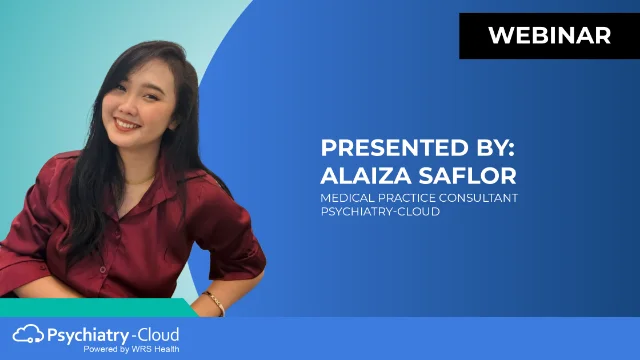Key Takeaways
- A mental health virtual assistant helps your psychiatry or behavioral health practice run lean without sacrificing care quality.
- Outsourcing administrative, billing, and compliance-heavy tasks frees clinicians to focus on patients, not paperwork.
- Smart virtual mental health staffing solutions improve cash flow, reduce burnout, and create scalable systems that support sustainable growth.
- Discover how your EHR can help you build and keep a high-performing team.
Running a psychiatry or mental health practice means balancing two equally important goals: delivering exceptional care and managing a profitable business. But with rising costs, staffing shortages, and compliance demands, many clinicians find themselves overwhelmed.
Here’s how smart virtual mental health staffing can help your practice stay lean, agile, and growth-ready.
Table of Contents
1. Strengthen Cash Flow with Expert Billing Support
Mental health billing is notoriously complex. Between time-based CPT codes, prior authorizations, and payer-specific requirements, even small errors can delay or deny payments. A virtual assistant for psychiatry trained in behavioral health billing can help ensure your claims are accurate and timely.
Why this matters:
- Industry studies show up to 20% of claims are initially denied or rejected, often due to coding errors or missing information.
- Follow-ups on denied claims can take hours—time your team doesn’t have.
- Reliable billing equals consistent cash flow, fewer surprises, and peace of mind.
If your practice generates $800,000 a year and loses just 8% to billing inefficiencies, that’s $64,000 in preventable revenue leakage. A professional billing service can help recover that income through claim scrubbing, accurate coding, and prompt resubmissions.
2. Lighten the Administrative Load with Virtual Help
Mental health practices often run lean teams, meaning front-desk staff juggle calls, patient intake, scheduling, and follow-ups, all while maintaining confidentiality and compassion. A mental health virtual assistant (VA) can manage these routine tasks remotely without adding in-office headcount.
Why this matters:
- VAs can manage appointment scheduling, reminders, insurance verification, and patient portal messages.
- Patients appreciate prompt, consistent communication, improving satisfaction and retention.
- Your in-office staff stays focused on clinical support, not endless admin work.
Since more and more people find it more efficient to schedule, amend, and cancel appointments online, start by assigning a virtual assistant for psychiatry to manage online follow-ups for appointments or therapy cancellations.
Picture this: your staff greets patients warmly instead of scrambling between ringing phones. That’s the power of smart delegation.
3. Build Trust and Visibility with Virtual Marketing Support
In mental health, patients are not only looking for a provider but more importantly, they’re looking for someone they trust. But with more patients searching online for therapy and psychiatric care, your digital presence determines whether they ever find you in the first place.
Why this matters:
- Over 75% of patients research behavioral medicine providers online before booking.
- Virtual mental health staffing for marketing can handle HIPAA-compliant content, local SEO, and patient education campaigns.
- Digital marketing helps re-engage inactive patients and strengthen loyalty as much as it acquires new ones.
Partner with a healthcare marketing service that understands HIPAA compliance and mental health sensitivity. For instance, targeted Google Ads or content marketing about anxiety, depression, or medication management can attract the right audience without overspending.
Think of marketing as therapy for your business reputation: consistent care, honest communication, and a visible online presence help your practice grow naturally.
4. Simplify Credentialing and Compliance
Credentialing is a tedious but essential part of running any behavioral health practice. Whether you’re onboarding a new psychiatrist, therapist, or nurse practitioner, payer approvals can drag for months, stalling your ability to see patients and bill for services.
Why this matters:
- Each payer has different timelines and requirements for mental and behavioral medicine providers.
- One small paperwork error can delay approval for weeks or months.
- Quicker credentialing means new clinicians can start generating revenue sooner.
There are virtual assistants for psychiatry who can take charge of CAQH updates, payer paperwork, and follow-ups to ensure faster approval and smoother onboarding. They can also track deadlines, manage follow-ups, and ensure every clinician gets cleared efficiently.
If your EHR vendor doesn’t provide a credentialing service, here are a few tips and tricks when credentialing or re-credentialing.
5. Turn Compliance into Opportunity with MIPS Support
If your psychiatry or psychology practice bills Medicare, MIPS (Merit-based Incentive Payment System) isn’t optional. It can be overwhelming but with the right training,or even hiring a mental health virtual assistant trained in MIPS reporting can help your clinicians meet documentation standards, avoid penalties, and even earn performance bonuses.
Why this matters:
- MIPS penalties can cut up to 9% from reimbursements.
- Proper documentation and reporting can instead earn positive payment adjustments.
- Many behavioral health providers overlook MIPS requirements due to misunderstanding the measures.
Invest in annual MIPS compliance training so your clinicians understand how to document behavioral health metrics accurately.
MIPS doesn’t have to be a burden. In fact, it can be a reward system for practices that operate efficiently and ethically.
Investing in Smart Virtual Support for Sustainable Practice Growth
Running a psychiatry or mental health practice means balancing patient care with business management, and both deserve attention. When you invest in billing, virtual mental health staffing, marketing, credentialing, and MIPS training, you’re not just buying services; you’re building a foundation for growth, stability, and better patient outcomes.
Think of it as preventive care for your practice’s financial health. The small, strategic investments you make today will keep your clinic strong, profitable, and ready to serve your community for years to come.











